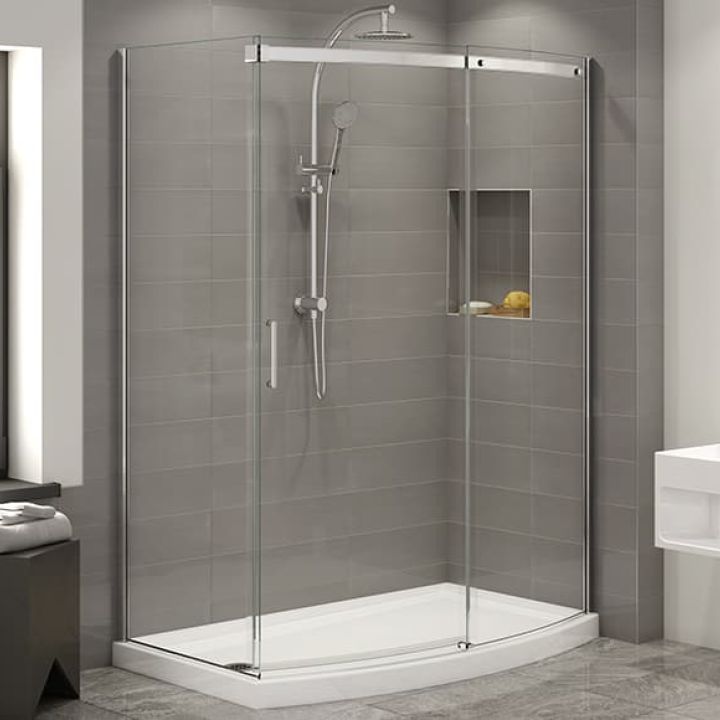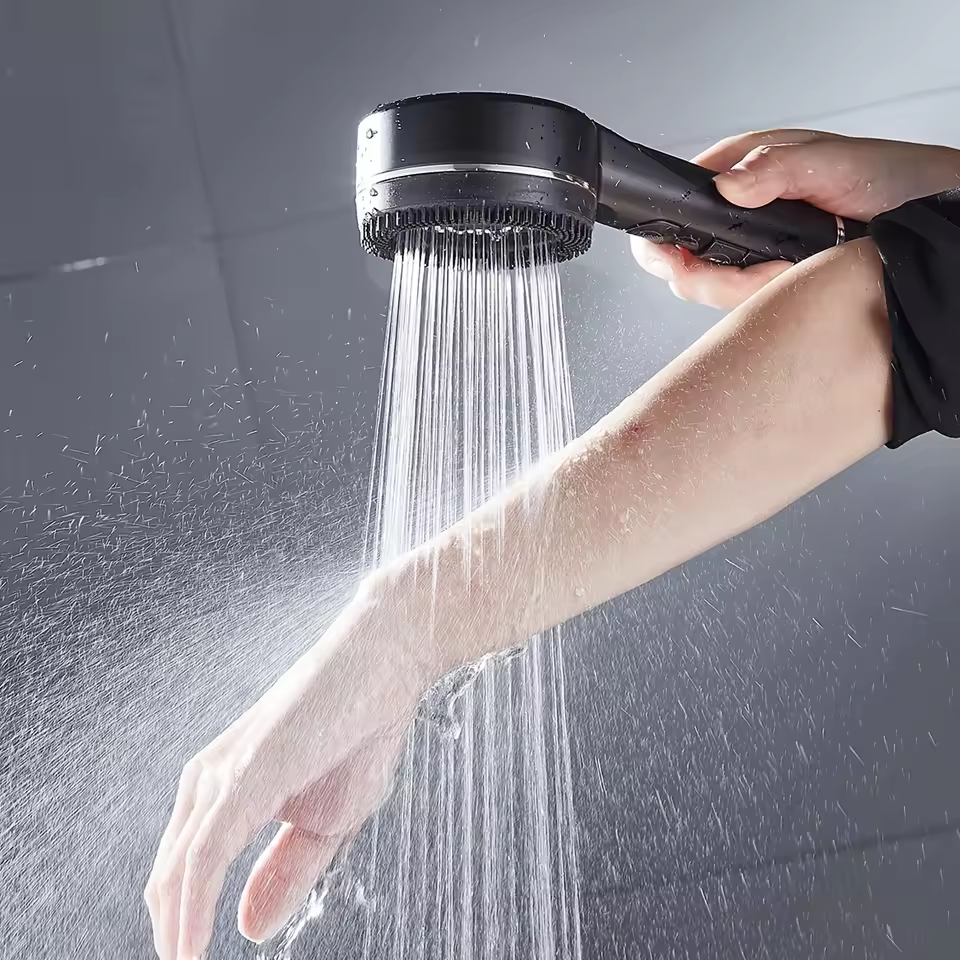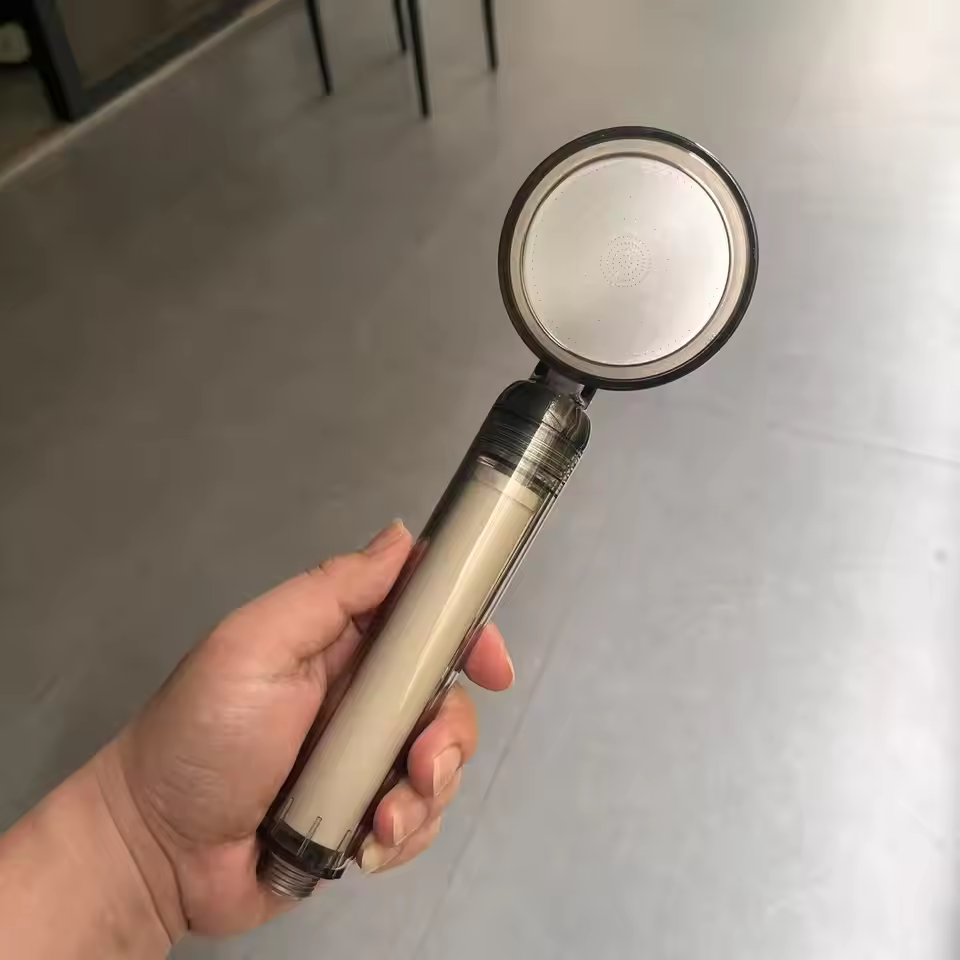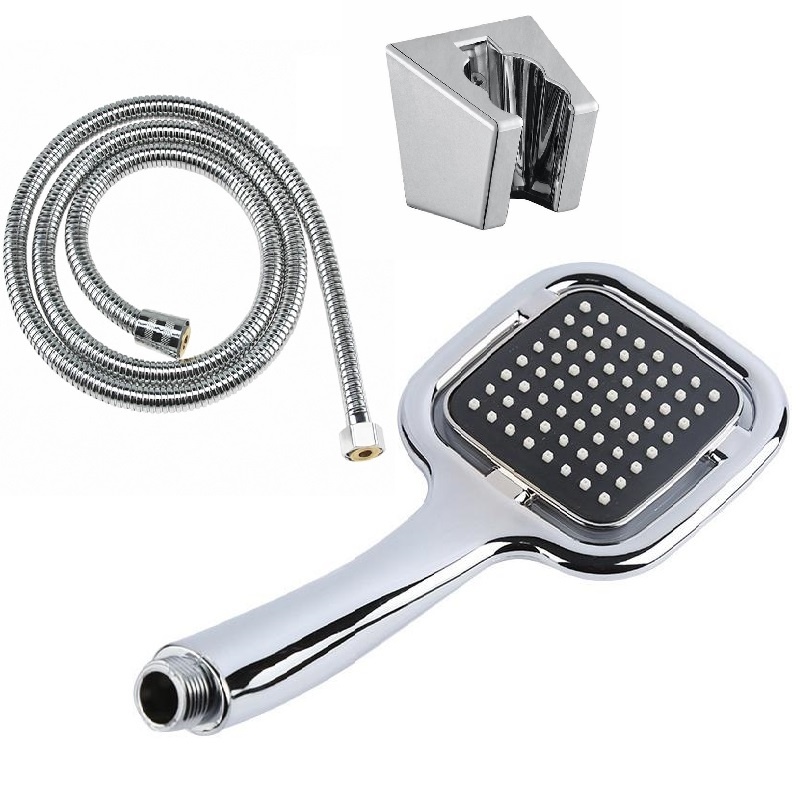Introduction to Fiberglass Shower Floors
Understanding Fiberglass Material and Benefits
Fiberglass shower floors offer many benefits. They are popular for their smooth, glossy finish. Fiberglass is a material made of glass fibers set in resin. This gives these floors a sleek look. They’re easy to install and fit in most budgets. Plus, they are lightweight and durable. With proper care, they can last for years. Fiberglass is less likely to crack compared to other materials. It makes for a great choice in many homes, especially in older properties. So, how to clean fiberglass shower floor ?
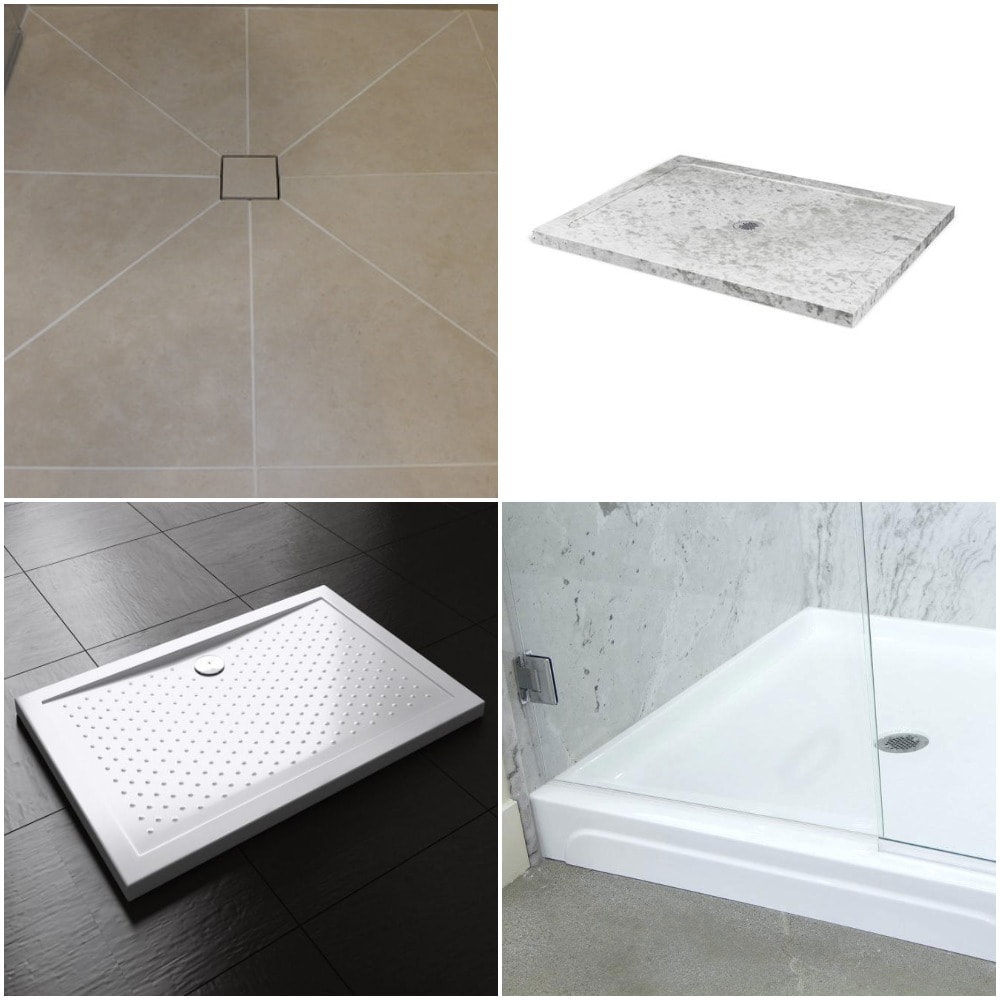
Common Issues with Fiberglass Shower Floors
However, fiberglass shower floors can face several issues. The top layer can scratch and wear over time. This can create tiny openings where mold and mildew thrive. Hard water can leave mineral deposits. These appear as unsightly streaks or spots. Soap scum can also build up, resulting in a dull and dirty-looking surface. Frequent cleaning is critical to maintain the shower’s appearance. Without it, grime can permanently stain the floor. This can make the shower look unclean and less appealing.
Daily and Weekly Cleaning Techniques
Maintaining a pristine fiberglass shower floor involves consistent care. For a surface that sparkles, integrate these daily and weekly cleaning techniques into your routine. Doing so helps avoid accumulation of unsightly stains and keeps your shower looking its best.
Using Warm Soapy Water for Routine Cleaning
Start with the simplest method: warm, soapy water. It’s gentle, yet effective for everyday use. Here’s how to clean your fiberglass shower floor with this easy solution:
- Fill a bucket with warm water.
- Add 2-3 squirts of dish soap.
- Optional: add a scoop of powdered oxygen bleach for white floors.
- Dip a sponge into the soapy mixture.
- Scrub the floor, focusing on areas with visible dirt or stains.
- Rinse thoroughly with warm water.
- Let the floor air dry completely.
Repeat this process at least twice weekly to maintain the floor’s gleam.
The Role of Vinegar and Dish Soap
Vinegar, known for its stain-lifting power, works well on fiberglass. Mixed with dish soap, it tackles grime with ease. Follow these steps:
- Combine equal parts water and white vinegar in a spray bottle.
- Add a tablespoon of dish soap.
- Swirl the bottle to mix.
- Spray the solution over the shower floor.
- Leave it for 10-15 minutes.
- Scrub with a sponge or a soft-bristled brush.
- Rinse and wipe dry with a clean cloth.
Use this vinegar solution weekly for a deeper clean.
Incorporating Baking Soda for Stubborn Stains
For tough stains, baking soda is your ally. It’s mildly abrasive, which helps it remove difficult spots without harming the fiberglass. Create a paste and apply it with the following instructions:
- Mix ?? cup of baking soda with water to form a paste.
- Apply the paste directly to the stains.
- Use a soft-bristled brush to work in the paste.
- Allow it to sit until dry, about 15 minutes.
- Scrub the stain until it lifts away.
- Rinse off residue and dry with a cloth.
Applying this method as needed will make sure even the most stubborn stains don’t linger long.
Intensive Cleaning Methods
For stubborn stains, you’ll need more intensive cleaning methods. These techniques can handle deep-set mold and scum.
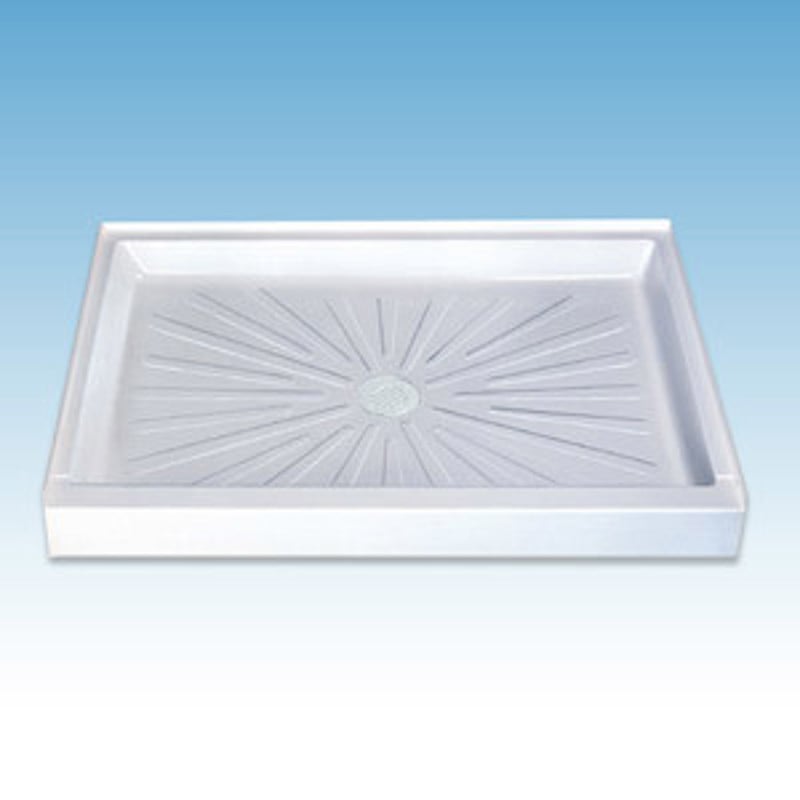
Utilizing Bleach Gel for Deep Stains
Bleach gel is a powerful choice for whitening and deep stain removal on white fiberglass floors. Here’s how to use it:
- Mix 6 tablespoons of cornstarch with 2 cups of water in a pot.
- Heat the mixture until it thickens into a gel.
- Allow to cool for 5 minutes, then add 10-12 tablespoons of bleach.
- Stir well and transfer it to a bottle with a spout tip.
- Apply the gel directly on stains and let it sit for 10-15 minutes.
- Scrub with a soft-bristled brush and rinse.
Repeat as necessary to keep your shower floor pristine.
The Advantages of Commercial Fiberglass Cleaners
Commercial cleaners designed for fiberglass are effective and convenient. Look for products with oxalic acid which are safe for fiberglass. They can remove rust and mold stains. Always wear gloves and a mask to protect from harsh chemicals.
Using Magic Erasers for Spot Cleaning
Magic Erasers are ideal for light stains and can be used without chemicals:
- Just wet the Magic Eraser with water.
- Gently scrub the stained area until it clears.
- Rinse any residue and dry with a clean cloth.
These sponges are great for quick touch-ups between regular cleaning sessions.
Preventative Measures and Maintenance
To keep your fiberglass shower floor in top shape, preventive measures are key. Regular maintenance can prevent damage and extend the life of your shower floor.
Regular Maintenance Tips for Longevity
- Dry the Floor After Use: Wipe the floor with a clean towel after each shower to prevent water spots.
- Ventilate the Bathroom: Keep the bathroom aired out to reduce moisture buildup and mold growth.
- Apply Car Wax Annually: Use car wax on your shower floor once a year to maintain its shine and repel water.
- Soft Cleaning Tools: Always use soft sponges or cloths to avoid scratches while cleaning.
- Regular Cleaning Schedule: Clean the shower floor at least twice a week with non-abrasive products to maintain its appearance.
Products to Avoid on Fiberglass Surfaces
- Abrasive Cleaners: Steer clear of harsh scrubbing powders that can scratch the surface.
- Acetone or Nail Polish Remover: These can damage the resin in fiberglass.
- Highly Acidic Cleaners: Avoid cleaners with high acidity as they might wear down the finish.
- Ammonia-based Products: These can cause cracking or discoloration over time.
By following these maintenance tips and avoiding harmful products, your fiberglass shower floor will remain clean and well-preserved.
Additional Cleaning Tools and Supplies
Recommended Brushes and Sponges
For effective cleaning, choosing the right tools is crucial. For your fiberglass shower floor, use soft-bristled brushes or sponges. These are gentle on surfaces and prevent scratches. Brushes with soft bristles work best for reaching corners and grout lines. Sponges should be non-abrasive to protect the finish of your shower floor.
When dealing with stubborn stains, an old toothbrush can be handy. It reaches small, tough spots easily. Always rinse tools after use to maintain their condition and prevent the spread of dirt.
Protective Gear When Using Chemicals
Safety is key when using cleaning products, especially chemicals. Always wear rubber gloves to protect your hands from harsh substances. This prevents skin irritation or damage.
Consider wearing goggles if you are using sprays or aerosols. They protect your eyes from accidental splashes. A mask is also recommended to avoid inhaling fumes from strong chemicals. These simple precautions keep you safe while you clean.
These tools and protective measures will ensure a safe and effective cleaning process for your fiberglass shower floor.
Conclusion
Summary of Best Practices
To keep fiberglass shower floors in top condition, follow these best practices:
- Regular Cleaning: Use warm soapy water or vinegar and dish soap for routine cleaning. Apply baking soda paste for tougher stains.
- Deep Cleaning: For deep stains, utilize bleach gel. Consider commercial cleaners for persistent mold and rust.
- Preventative Measures: Dry the floor post-shower, ventilate the bathroom, and apply car wax annually to protect the surface.
- Use Proper Tools: Always clean with soft-bristled brushes or non-abrasive sponges.
- Safety First: Wear gloves, goggles, and masks when using chemicals to protect skin, eyes, and lungs.
By following these methods, your fiberglass shower floor will remain clean, glossy, and well-maintained.
When to Consider Professional Cleaning Services
Consider professional cleaning services in the following scenarios:
- Persistent Stains: If home methods fail to remove stains, professionals can help.
- Lack of Time: Busy schedules might make regular cleaning challenging. Hiring professionals ensures timely cleaning.
- Before Special Occasions: Get professional cleaning before hosting important events to ensure your bathroom is sparkling clean.
- Annual Deep Cleaning: Even with regular maintenance, consider having a professional deep clean once a year to maintain optimal conditions.
Professional cleaners have the right tools and products to handle tough cleaning jobs safely and efficiently.
